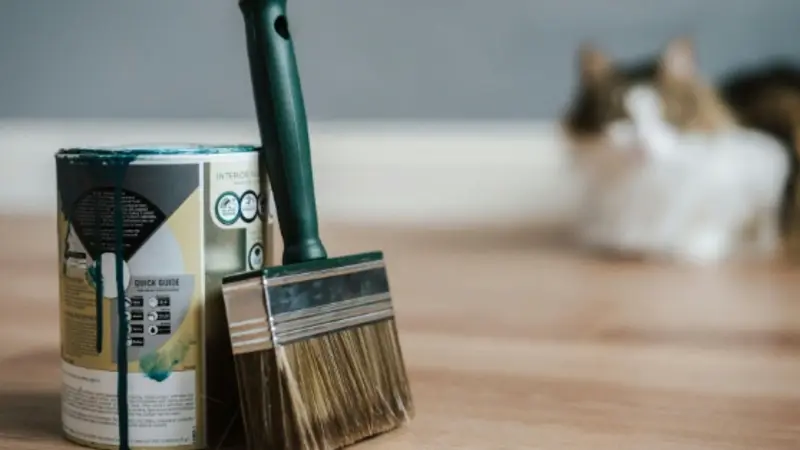You might wonder how great and massive structures, including bridges, machines, and equipment, have remained intact for a long time. Generally, that depends on the role of industrial paints in surface protection of metal, which protects metal surfaces from corrosion, rusting, and wear. Let’s now examine the workings of industrial paints and why they are necessary to maintain metal structures.
Why Industrial Paints Are Essential?
Metal surfaces degrade in the natural environment. Water, air, and even chemicals can affect them, causing rust and corrosion. It may weaken structures, which are costly to repair, or even present a safety hazard.
These industrial paints are formulated to provide a protective coat over metallic surfaces. This cover prevents water and other chemicals from directly contacting the metal. Using the proper industrial paint will prolong the life cycle of your metal structures and equipment while saving you hard-earned money in the long term.
How Industrial Paint Prevents Corrosion and Rust
Once water is added, metal oxidation results in rust. Commercial paints contain inhibitors that prevent this while protecting the surface by establishing an incredibly strong, permanent metal against the elements.
Also, some of the paints have compounds that are resistant to high temperatures, UV lights, and chemicals. They prove handy when metallic faces harsh conditions such as the manufacturing process or setting up an outside construction.
Types of Industrial Paints
The right industrial paint ensures that the paint offers protection for a longer time than metal. Below are some of the best coatings used on various metals:
Epoxy Coatings
These paints work very well on steel and iron. They possess the finest adhesive properties, so they are very useful against water and chemical erosion. They are especially suited to machine equipment that has been subjected to grueling wear.
Polyurethane Coatings
These have durability and UV resistance properties. They are best used on aluminum, particularly in outdoor applications such as bridges or pipelines.
Zinc-Rich Coatings
Zinc-rich paints give excellent rust and corrosion protection. These are applied to steel structures to prevent oxidation in areas where the metal comes into contact with moisture.
Acrylic Coatings
Acrylics are lightweight and, hence, flexible. They must be applied to surfaces often moved or expanded. Their application is very common for protection and aesthetic enhancement, especially on stainless steel.
Applying Industrial Paints
Industrial paints find their best application when one does it right. Several tips help in achieving this smooth and effective finish:
- Surface preparation: The metal’s surface must be cleaned well before painting. Rust, dirt, and oils must be removed to bond the paint well.
- Primers: Using a primer allows the paint to adhere much better to the surface. It also makes the paint last longer and endures.
- Follow the manufacturer’s instructions: They advise how to follow by reading the label correctly. Some paints do need certain specifications.
- Apply in Layers: Paint in fragile layers, not as if you were spreading one thick coat on top. This will ensure full coverage and protection.
Wrapping Up
Industrial paints are very important in protecting metal from destructive corrosion and wear-out effects. Any material you are working with, whether made from steel, aluminum, or other metals, if used with quality industrial paint products, will undoubtedly provide substantial and long-term protection so as not to waste both time and money and aggravate it.
Conclusion
In conclusion, the role of industrial paints in surface protection of metal play a pivotal role in preserving the integrity and longevity of metal structures and equipment. By creating a robust protective barrier against corrosion, rust, and environmental wear, these paints ensure safety, reduce maintenance costs, and extend the service life of valuable assets. From epoxy and polyurethane coatings to zinc-rich and acrylic options, the variety of industrial paints caters to specific needs and conditions, offering tailored solutions for different metals and environments.
Proper application techniques, including surface preparation, priming, and layering, further enhance their effectiveness, making them an indispensable tool in industrial maintenance. By investing in the right industrial paint and applying it correctly, you can safeguard your structures, save resources, and ensure their durability for years to come.
